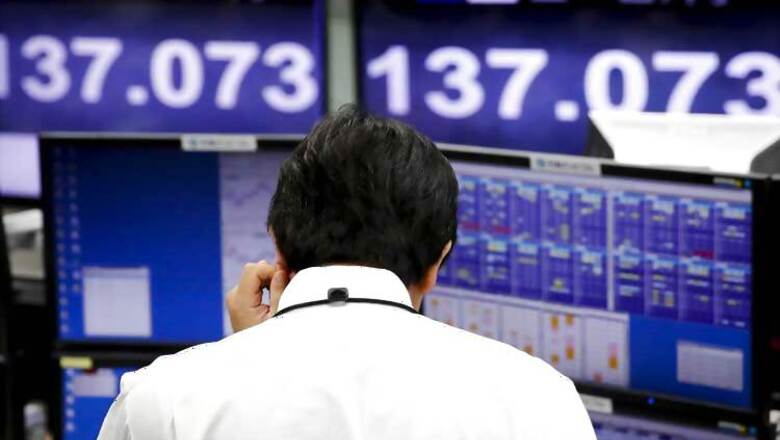
views
Our largest and the most powerful neighbour China is causing tremors in India. The reason is not the Chinese military power. The cause for the worry is volatile Chinese stock market. The Chinese market is continuously crashing and its effects are already being felt all over the world. Will the Chinese markets stabilise? Will they affect the world economy in a big way? Or is it just a temporary phase which can end soon?
Even though the Chinese stock market is one of the largest in the world and the Chinese economy is the second largest in the world, it is not actually a transparent, first world market. In a single party Communist China, the markets are heavily regulated by the Communist government and the manipulation to suit the interests of the select few investors is rampant. Stock market scams are also quiet common in a very corrupt country like China.
According to Michael Hiltlzik of Los Angeles Times, the China stock market meets the definition of a bad stock market. He writes, "the market is the target of relentless intervention by the Chinese government, which has been setting investment rules and tweaking them without any evident understanding of how open markets work. Adding to the chaos, the market was inflated by an inflow of small investors buying on huge margins — a notoriously skittish class of investors buying under conditions that made them especially vulnerable to the market's volatile swings."
In April, 2015 as Evan Osnos of the New Yorker reported, the official organ of the Chinese Communist Party exhorted citizens to plunge into the market. An upsurge of more than 80% in four months was "merely the start of a bull market." Investors should take heart from the government's determination to keep Chinese companies strong.”
He adds that None of this means that there's not cause to be concerned about the Chinese economy and its effect on world markets. Underlying the Chinese market plunge are signs that the world's second-largest economy is slowing down, and that government economic officials aren't fully up to the task of managing it. They've been frantically depreciating the Chinese yuan, which will put pressure on the nation's trading partners by making Chinese exports more competitive and imports more expensive. The rapid depreciation sends a signal, moreover, that policymakers are getting to the end of their stimulative arsenal.Adding to uneasiness about government policy, no one has ever been entirely certain about the pace of China's economic growth because its official figures are untrustworthy. Gross domestic product may have been overstated as much as three-fold, some observers believe.
In an article in USA Today, Hannah Gardner argues that the Chinese economic woes go beyond Market crash. She writes “For most of the last three decades, China has enjoyed breakneck levels of growth by exporting vast quantities of cheap consumer goods worldwide thanks to its vast workforce and scant concern for labor rights or the environment. But faced with rising labor costs, an aging population and escalating pollution, the ruling Communist Party is now struggling to shift to a new economic growth model based on innovation, domestic consumption, higher-end manufacturing and services.
Matters came to a head this week when China’s problems set off a global stock market rout.”
According to an article in Business Today, it can affect imports from China to India. Joe C Mathew writes, "Well, almost all toys, a child might say. For the grown-ups, nearly all household smart phone brands, be it Apple, Micromax, Xiaomi or Lenovo, would either have been shipped from China, or will have some components made in China. Telecom instruments, right from the handset to equipment that goes into telecom infrastructure, come from China. Pharmaceutical companies will tell you how dependent they are on China made basic raw materials - intermediates, bulk drugs etc. - for the manufacture of medicines in India. How will the devaluation of Yuan affect these imports? As Commerce Minister Nirmala Sitharaman rightly points out, "It is a worrying development as it will make imports from China cheaper and our products more expensive." Slowing down of economy in China will also create excess capacities, leading to increased dumping of cheap products into China."
The good news is the volatile Chinese market can help India to get more Foreign Direct Investment (FDI). It can also become a big manufacturing hub, if China fails to stabilise its markets and economy. India can also get a lot of cheaper Chinese funds for its infrastructure projects. Unlike China, India is a vibrant democracy and has an independent judiciary. If Indian regulators stop unnecessary interference and the judiciary backs reforms, India can surely beat China in the long run.

















Comments
0 comment